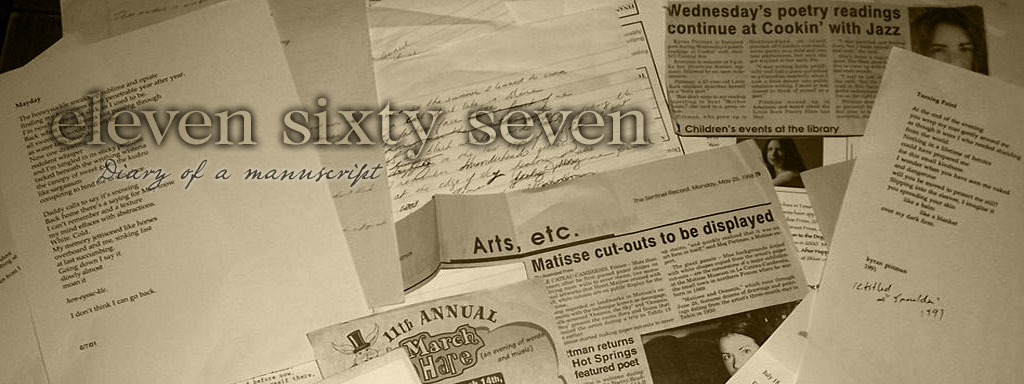 1,082I am back. And preparing for the poetry readings in Ireland. I was asked to provide a long biographical sketch/statement for publicity purposes. I hate doing those things. But since I am working toward a manuscript with a specific theme in mind, it is suddenly helpful for me to articulate where I am coming from. I don't know if the following will prove at all useful for the purposes of promoting the tour, but it at least belongs here.
1,082I am back. And preparing for the poetry readings in Ireland. I was asked to provide a long biographical sketch/statement for publicity purposes. I hate doing those things. But since I am working toward a manuscript with a specific theme in mind, it is suddenly helpful for me to articulate where I am coming from. I don't know if the following will prove at all useful for the purposes of promoting the tour, but it at least belongs here.If countries and cultures had an equivalent of an imaginary median--a sort of Greenwich Mean Line--that is my homeland. Although my passport cover says Canada, and that is officially my government, I literally have no nation. I was raised on my father's island, and lived there until I was twenty-six years old, so that is home to me in terms of cultural origin. But although my father's lineage runs deeply there, my mother is from the mainland, which dilutes my legitimacy, as island people everywhere would define it.
To be from Newfoundland is to belong to no man's land. The island became a reluctant province of Canada in my father's lifetime. The Dominion of Newfoundland, which had only existed for a generation prior, ceased to be in 1949. When I was born twenty years later, there was, and continues to be, a great deal of ambivalence and resentment over the Confederation with (more aptly, into) Canada. A kind of wistful revisionist history has sprung up over the years that would have one believing there was a golden age of Newfoundland independence, when the pink, green and white flag flew from every rooftop, but the Dominion was short-lived and collapsed ingloriously. Hardly a shining epoch. The unromantic truth is that Newfoundland has ever been used and passed around by distant powers, with its own merchant class acting in collusion.
Ten years ago, I took my Canadian passport and moved to another kind of island, the American south. Here I am also the outsider, although my status as a foreigner places me several notches above a Yankee, and affords me slightly more indulgence. Like Newfoundland, the South has a mythic sense of itself, telling itself stories to keep from being crushed with shame. The real histories of both places are ignomious, stained with poverty, defeat, and crimes of the landed class against the people. In addition to telltale accents, old music and strong drink, they have paradoxical sets of characteristics in common: entrenched obstinacy and almost servile insecurity, irrevocable suspicion of outsiders and exaggerated pride in their own hospitality. Both peoples seem to exist in two overlapping dimensions: the mythological and the real. They straddle the borderlands, the thin place. Where as a writer, I may range, but never settle. Never belong.


